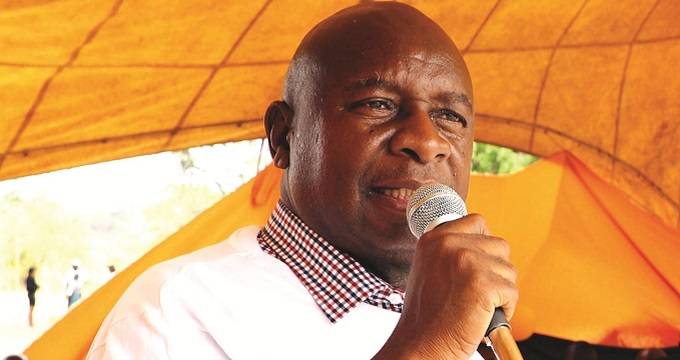Schools to draft pupils’ disciplinary policies

Pamela Shumba, Senior Reporter
SCHOOLS will now be required to draw up disciplinary policies to correct disobedience by pupils in line with the Education Amendment Bill of 2019.
The Bill, which was gazetted on February 15, 2019 seeks to address the shortcomings of the 2006 Education Act (Chapter 25:04).
The amendment, which will result in primary and secondary education becoming free, places the responsibility of funding basic education on the Government.
It also attempts to address the social imbalances that exist in the country.
Presenting the Bill in Parliament on Tuesday, Primary and Secondary Education Deputy Minister Edgar Moyo said section 68A outlaws corporate punishment in schools.
“Section 68A of the Education Amendment Bill outlaws corporate punishment in schools in line with the Constitution, which prohibits any physical or psychological torture or cruel inhumane or degrading treatment or punishment.
“The Bill also bars teachers from beating school children in whatever circumstances. It supports other forms of discipline in schools and thus encourages the schools to draw up disciplinary policies in accordance to the standards set out in regulations to be gazetted by the Minister,” said Deputy Minister Moyo.
He said the Bill further provides for the right of every child to be heard and have their opinions taken seriously in administrative proceedings affecting them at the schools before any suspension from the school is granted.
“This provision is welcome as it recognises the rights of children to be heard based on their evolving capacities and the ability to participate in matters that affect them. The ‘best interest of the child’ principle is also being upheld in this Bill,” said Deputy Minister Moyo.
He said section 68B of the Bill mandates every registered school to provide infrastructure suitable for use by pupils with disabilities.
“The Bill further mandates the Ministry’s Permanent Secretary to monitor every school to make sure that the rights of pupils with disabilities are provided for and are being met during learning and teaching.
“In addition, the Bill mandates all registered schools to submit a plan highlighting the extent to which the school is advancing the needs and rights of pupils with disability,” said Deputy Minister Moyo.
On the exclusion of pupils from schools, the Deputy Minister said the Bill seeks to protect the rights of children to education by stating that no pupil shall be excluded from school for non-payment of school fees or on the basis of pregnancy.
“The provision places an obligation on school authorities to ensure that pregnant girls are allowed to continue with their education regardless of their status while at the same time ensuring that no child is sent back home for non-payment of fees which is the parent’s responsibility and not the child.
“This provision attempts to address the social imbalances that currently exist in the Zimbabwe context. Article 11 of the African Charter has been applauded for making provisions that cater for the disadvantaged groups by obliging member States to take affirmative action and measures which protect the female, disadvantaged and gifted children,” said Deputy Minister Moyo.
He said the enactment of the Bill is expected to improve access to both primary and secondary education in Zimbabwe and presents changes in schools, which will result in greater education in the country.
Of major importance, he added, is the right to a basic state-funded education including adult basic education whereby the State is obliged to put in place reasonable measures to ensure progressive realisation of the education right within the limit of the resources available to it.
Chairperson of the Parliamentary Portfolio Committee on Education, Ms Misihairabwi-Mushonga, commended the support rendered by the Ministry of Primary and Secondary Education during their public hearings.
– @pamelashumba1












Comments